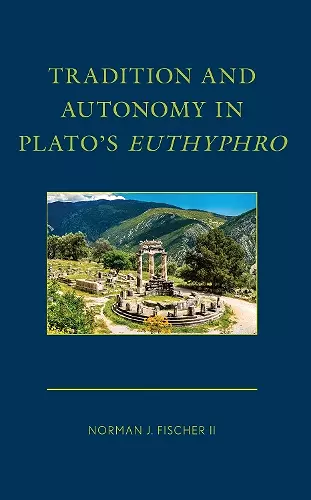Tradition and Autonomy in Plato's Euthyphro
Format:Hardback
Publisher:Bloomsbury Publishing PLC
Published:30th Oct '23
Currently unavailable, and unfortunately no date known when it will be back

Tradition and Autonomy in Plato’s Euthyphro shows, through detailed commentary, that the purported opposition between tradition and autonomy is not a contradiction, but rather a necessary tension in human and political life. Norman J. Fischer II identifies the root of this tension and illuminates its various dimensions, giving an account of tradition and piety that does justice to the autonomy implicit in philosophical inquiry. This book demonstrates that the weakness in Euthyphro’s understanding of the relationship between generations is one of enmity and argues for a friendlier version of piety implicit in Socrates’ suggestions, actions, and arguments in the dialogue. Fischer argues that this version reveals an understanding of the human soul that both opposes that of Socrates’ accusers and sheds light upon the challenge that philosophy poses to the political community. In this reading, Plato’s Euthyphro is part of the defense of Socrates against the charges of impiety and corruption, one that puts into clearer relief both the common grounds of politics and philosophy and the tensions between political life and the life of the mind.
The first words of Plato’s Euthyphro are ti neoteron—idiomatically, “What’s new?” but, more literally, “What’s newer?” Norman Fischer’s Tradition and Autonomy in Plato’s Euthyphro is organized around the penetrating insight that, for Plato, the answer to the idiomatic question is that to human beings nothing is ever really new and nothing is ever is really old—only newer and older. Accordingly, there are no absolute points of beginning from the past that altogether determine what we become; nor are our futures ever so open that we ourselves can make absolute beginnings. This is the character of our being in time. It shows up powerfully in the explicit theme of Plato’s Euthyphro—piety—which involves honoring the past (tradition) so as to forge a future (autonomy). Fischer follows this pair of opposites bound irrevocably together, and other pairs born of it, with great care and imagination and forges a subtle and bold argument for what it is that makes piety a virtue. This is a book worth reading. -- Michael Davis, Sarah Lawrence College
ISBN: 9781666928259
Dimensions: 239mm x 158mm x 23mm
Weight: 549g
234 pages